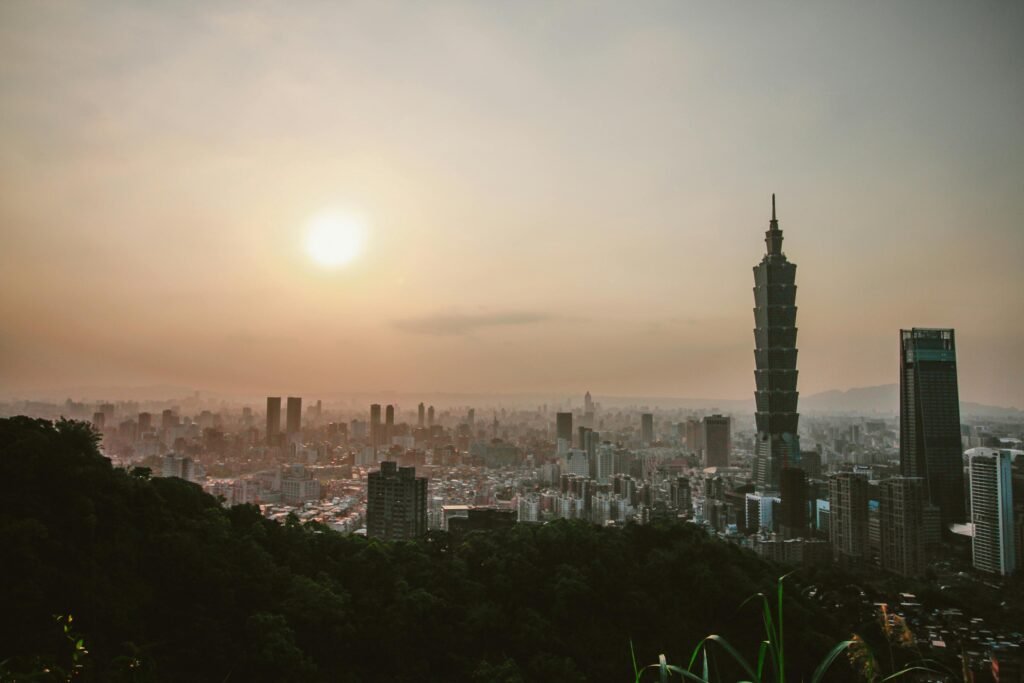In a world where safety often feels uncertain, Taiwan stands out. According to Numbeo’s 2025 global ranking, Taiwan ranks as the 4th safest country, ahead of nations like Japan, Singapore, and even some Western powerhouses. This is remarkable not only because of Taiwan’s high ranking but also because it shows that safety is about more than just policing—it’s about culture, social cohesion, and shared values.
While statistics can tell us one part of the story, it is Taiwan’s cultural fabric that truly makes it safe. Let’s explore 5 key cultural values that contribute to Taiwan’s remarkable safety.
- Religious Diversity and Mutual Respect
Taiwan is home to a wide range of religious practices: Buddhism, Taoism, Christianity, folk religions, and more. Rather than causing tension, this diversity fosters tolerance and respect for others. Religious freedom encourages dialogue, understanding, and empathy. People are taught to coexist peacefully with those who hold different beliefs. This cultural respect reduces conflicts that could escalate into violence and contributes to the overall feeling of safety. Moreover, many religious teachings in Taiwan emphasize moral behavior, kindness, and helping others. These principles influence everyday conduct, supporting a culture where people generally act with consideration for others.
- Civic Responsibility and Education
One of the key reasons Taiwan remains such a safe country is the high level of education among its citizens. Today, most people in Taiwan complete at least Senior High School, giving the average citizen a solid educational foundation. Beyond that, an increasing number of people go on to earn bachelor’s, master’s, or even PhD degrees, reflecting a steady growth in higher education levels across the population. This widespread access to education has a direct impact on civic responsibility. People with higher educational backgrounds tend to understand societal rules, respect regulations, and recognize the importance of following them, not merely out of fear of punishment but because they comprehend the benefits for the entire community. In addition, higher education often correlates with economic stability, which further contributes to safety. When individuals are better educated and economically secure, there is less incentive for crime, and more awareness of ethical and lawful behavior.
In Taiwan, the combination of a well-educated populace and growing economic opportunities helps create a society where citizens know the rules, value public order, and actively contribute to a safe and stable environment.
- Honest and Polite Social Behavior
One of Taiwan’s most notable traits is the honest and polite nature of its people, sometimes referred to as 民風純樸 (mín fēng chún pǔ).
From city streets to rural villages, Taiwanese people generally approach strangers with kindness and respect. Small gestures, like helping someone with directions or returning a lost item, reflect a broader cultural commitment to integrity. This honesty and politeness create a society where trust is the norm. Residents feel confident walking alone at night, and travelers often report feeling secure and welcomed. A culture that values decency in everyday interactions makes for a naturally safer environment.
One of my students, who left Taiwan a decade ago, recently visited again. He shared that, from his point of view, Taiwan hasn’t changed much—its culture, way of life, and pace still feel very familiar.
- Gender Equality and Respect for Individual Freedoms
Taiwan has made significant strides in gender equality and human rights. It became the first country in Asia to legalize same-sex marriage and actively promotes policies that protect women and minority groups. This progress translates directly into safety. Women can walk alone without heightened fear, and individuals are generally free to express themselves without risk of harassment or discrimination. When people’s rights are respected and social inequalities are minimized, social tensions decline. Taiwan’s commitment to equality contributes to a safer and more harmonious society.
- Harmony as a Core Value
Finally, the pursuit of harmony (和諧共處, hé xié gòng chǔ) is deeply embedded in Taiwan’s cultural DNA. Inspired by Confucian, Taoist, and Buddhist philosophies, harmony emphasizes cooperation, compromise, and balance in relationships. In practical terms, this encourages people to avoid unnecessary conflict and resolve disagreements peacefully. Whether in workplaces, schools, or families, harmony is prioritized over aggression.
This cultural orientation reduces the likelihood of violent disputes. People are more willing to negotiate, empathize, and maintain peaceful coexistence, which is essential for safety at both personal and societal levels.
The Takeaway
Taiwan’s safety is not just the result of law enforcement or low crime statistics—it is a reflection of deeply ingrained cultural values. Religious tolerance, civic responsibility through education, honest and polite social behavior, gender equality, and the pursuit of harmony all work together to create a society where people feel secure and respected. Safety is as much about culture as it is about policing. When citizens are educated, empathetic, and guided by shared values, communities thrive and crime diminishes. Taiwan shows us that a society built on respect, integrity, and harmony can offer not only physical security but also a sense of peace and well-being for everyone who lives there or visits.
Latest Episode
In this week’s episode, C#43 2025年全球最安全國家排名揭曉:台灣排名第4! I want to take you on a closer look at why Taiwan earned this impressive spot. From my perspective, it’s not just about statistics or government policies—it’s about the culture and values that shape everyday life here.
I’ll share what makes Taiwan stand out compared to countries like Singapore, Japan, and the U.S., and we’ll explore the social and cultural factors that give people a real sense of security. From the respect for law and order, to religious freedom, to the spirit of harmony that guides daily interactions, I’ll walk you through the unique mix of values that make Taiwan not only safe but also welcoming. By the end of this episode, I hope you’ll understand why living in Taiwan feels secure, and why these cultural elements are just as important as any crime statistic. Listen to the Podcast
Phrase of the Week
民風純樸 (mín fēng chún pǔ) – People are simple and honest.
Sample Sentences
- 台灣鄉下地方的民風純樸,讓旅客很感動。
Táiwān xiāngxià dìfāng de mínfēng chúnpǔ, ràng lǚkè hěn gǎndòng.
The simple and honest people in Taiwan’s countryside touch travelers deeply.
- 民風純樸是台灣被評為安全國家的原因之一。
Mínfēng chúnpǔ shì Táiwān bèi píng wéi ānquán guójiā de yuányīn zhī yī.
The honest and simple culture is one reason Taiwan is ranked a safe country.
- 在民風純樸的環境裡,犯罪率通常比較低。
Zài mínfēng chúnpǔ de huánjìng lǐ, fànzuì lǜ tōngcháng bǐjiào dī.
In environments where people are honest and simple, crime rates are usually lower.
- 他覺得這個小鎮民風純樸,很適合居住。
Tā juéde zhège xiǎozhèn mínfēng chúnpǔ, hěn shìhé jūzhù.
He feels this small town is simple and honest, a perfect place to live.

